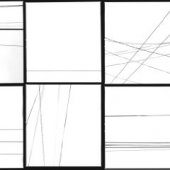
Tortoise
Beacons Of Ancestorship
Label: Thrill Jockey
Genre: Post Rock / Avant Rock
Availability
- CD Digi / Cardboard €6.99 Nice Price Out of Stock
<p>Beacons of Ancestorship is Tortoise's sixth full-length album, and their first release of new material in five years, since 2004's It's All Around You. In the interim, the group also released and toured behind the 2006 career retrospective box set A Lazarus Taxon, and an album of covers with vocalist Will Oldham by the likes of Elton John, Bruce Springsteen, Richard Thompson, and The Minutemen, entitled The Brave and the Bold. Additionally, the individual members have kept busy with various other projects, including but not limited to Exploding Star Orchestra, Bumps, Fflashlights, and Powerhouse Sound.</p>
<p>A characteristic Tortoise album is one that traverses an encyclopedia of styles and reference points, a document of where musical intersections and dialogue are occurring at a given moment in time. Beacons of Ancestorship is no different, with nods to techno, punk, electro, lo-fi noise, cut-up beats, heavily processed synths, and mournful, elegiac dirges. We see these ideas working out in compositions like “High Class Slim Came Floatin' In,” an eight-minute track which playfully references the world of ecstatic rave and dance culture with a curiously ambivalent, multi-part suite overlaid with robotic, machine-sounding melodies that stop and start in several different time signatures before the song’s ultimate resolution; and again in “Yinxianghechengqi,” which begins as a straightforward uptempo math-rocker before steadily accelerating into a wall of fuzzy atonal sqwonk.</p>
<p>There are many moods, styles, and modes in the Tortoise songbook, of course—often, in the course of a single composition. Consistent throughout, however, is what might be called a pervasive element of group play, or ensemble-mindedness, as opposed to emphasis on a virtuoso soloist or frontman. (Think Robert Altman versus Robert Plant.) In the same sense that the string quartet and all small-ensemble chamber music can be thought of as an intelligent conversation among equals—violins, viola, and cello taking turns, expressing opinions, joining voices and then coming apart, as also occurs in elevated discourse—so, too, the calling card of a Tortoise song is the experience of a sound being worked out as a conversation among the individual and interrelated parts—of an ensemble thinking collectively and in group dynamics through the expression of a multi-layered musical thought.
Ronen Givony
